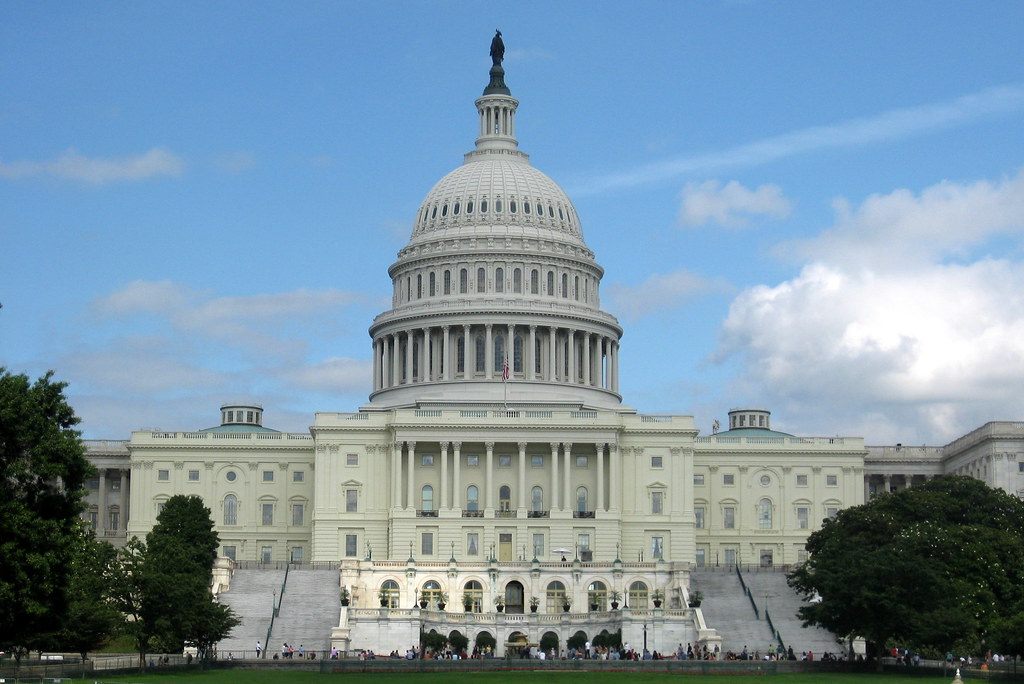As we at the Revolving Door Project have long argued, the crisis surrounding the confirmations (or rather, the lack thereof) of Biden’s highly qualified nominees remains an issue of critical importance.
From federal judgeships to legal advisor and even inspector general positions, crucial roles throughout the executive branch have now been left unfilled for weeks, months, and even years. Why? For no reason other than pointless partisan politicking in which key agencies and their desperately needed services are nothing more than a pawn of the Republican party’s bad-faith and conspiratorial animus.
In short, the confirmation crisis remains a crisis, especially as the time left in the 117th Congress – and the slim Democratic majorities which it offers – dwindles day by day. Hundreds of nominees are still left stranded at some point in the hyperpartisan battle that has plagued many confirmation pushes, and time is literally running out for Democrats to have the votes they need to guarantee their qualified nominees their roles.
Democrats must finally confront and legitimately contend with the dire straits this crisis represents, and the threat that this blockade poses, now and into the future, to the health of the federal bureaucracy and the effectiveness of the agencies long left without even their leadership.
For ease of access, we have concentrated all of our work on the topic below, with this blog to be updated with any and all future publication on the subject:
Historical Context:
Senate Republicans have long played the long game with the immense power of the independent agencies. During the Trump administration, Mitch McConnell spearheaded a slow but sure Republican takeover of ostensibly bipartisan institutions by leaving Democrat nominees stranded awaiting votes while simultaneously ushering through their Republican counterparts, resulting in a politicized process that amounted to a massive deregulatory handout to corporate oligarchs.
Chuck Schumer let this quiet takeover both happen and stay quiet. When Schumer waffled on proposing a critical candidate to fill a Democratic seat on the Securities and Exchange Commission, for example, McConnell took the opportunity to push through the administration’s Republican commissioner without response or recourse from his Democratic colleagues. This afforded securities law violators significantly less punitive retribution, and contributed to the nearly non-existent enforcement environment which existed during the Trump-era SEC.
The Wasted Time of the Confirmations Crisis:
The confirmation system is broken. According to our analysis (done in June of 2021,) Republican bad actors could manipulate the confirmation system to hold hostage hundreds of Biden’s highly qualified nominees in a process so tedious that it could be made to waste more than 159 days of Senate floor time.
As of August 31, our analysis shows nearly 330 positions across the federal government that still need to be filled by Senate confirmed nominees. With only 125 days left in this Senate session, these hundreds of leaders correlate to over 141 days of Senate floor time should Republicans take their malfeasance to its most extreme. Following the August recess, Democrats must finally take this crisis seriously and do all that they can to ensure the federal government is staffed.
The Confirmations Crisis and its Negative Impact on the Federal Landscape:
Our Spring 2022 Independent Agency analysis revealed that months-long nomination blockades continued to drag on as Senate Republicans dissolved valuable floor time with illegitimate protestations over highly qualified nominees. Our analysis examined how these protests are currently hobbling the efficacy of critical agencies (and critical policy initiatives) such as the Federal Communications Commission in its efforts to restore net neutrality and broadband access rules as well as the Nuclear Regulatory Commission and Federal Mine Safety and Health Review Commission, and others.
Crucial nominees at the Department of Housing and Urban Development remain stalled in the Senate, where several have been awaiting confirmation for more than a year. Other parts of the agency, like at HUD’s Community Planning and Development, remain without an official nominee, leaving glaring leadership gaps across the agency.
US Attorneys have a real opportunity to implement a more just and equitable criminal legal system, one that focuses on the systemic commission of crimes like corporate and white collar crime, environmental destruction, broad scale tax evasion, and more. Unfortunately, Biden has neglected this crucial position (or perhaps been stymied in it) due to racist and antiquated Senate procedural traditions that give seditionists a say in who his picks are.
What Democrats Can Do:
The Republican battle on confirmations has been waged since the beginning of Biden’s term. As was true then and remains true now, this sabotage of Biden’s personnel and policy agenda has dire consequences for the functionality of the federal government and its ability to adequately serve the public. Democrats have a responsibility to their constituencies to ensure that a literal minority of lawmakers can’t hamstring the government’s efficacy as a result of senseless and antiquated procedural rules.
Democrats need to modernize the rules in order to close pointless loopholes and to streamline the confirmations process. They have a slew of tools at their disposal in order to do this, like limiting the amount of time that can be committed to post-cloture debate and permitting the grouping of nominees over a set number of debatable hours. Democrats have options to combat Republicans in their villainous manipulations of policy, procedure, and norms, they just need to finally exercise them.
It’s also time for Congress to step up to the plate regarding its oversight responsibilities over the activities and behaviors of the rest of the federal government. There is a ready made list for where it might be edifying for congressional Dems to start: Trump holdovers.
Seditionists should get no say in who is appropriately qualified to staff the federal government. Instead of offering them de facto veto power, Biden should reject antiquated procedural traditions (such as blue slips) and instead rely on the guidance of his allies for nominating qualified candidates to these roles.

